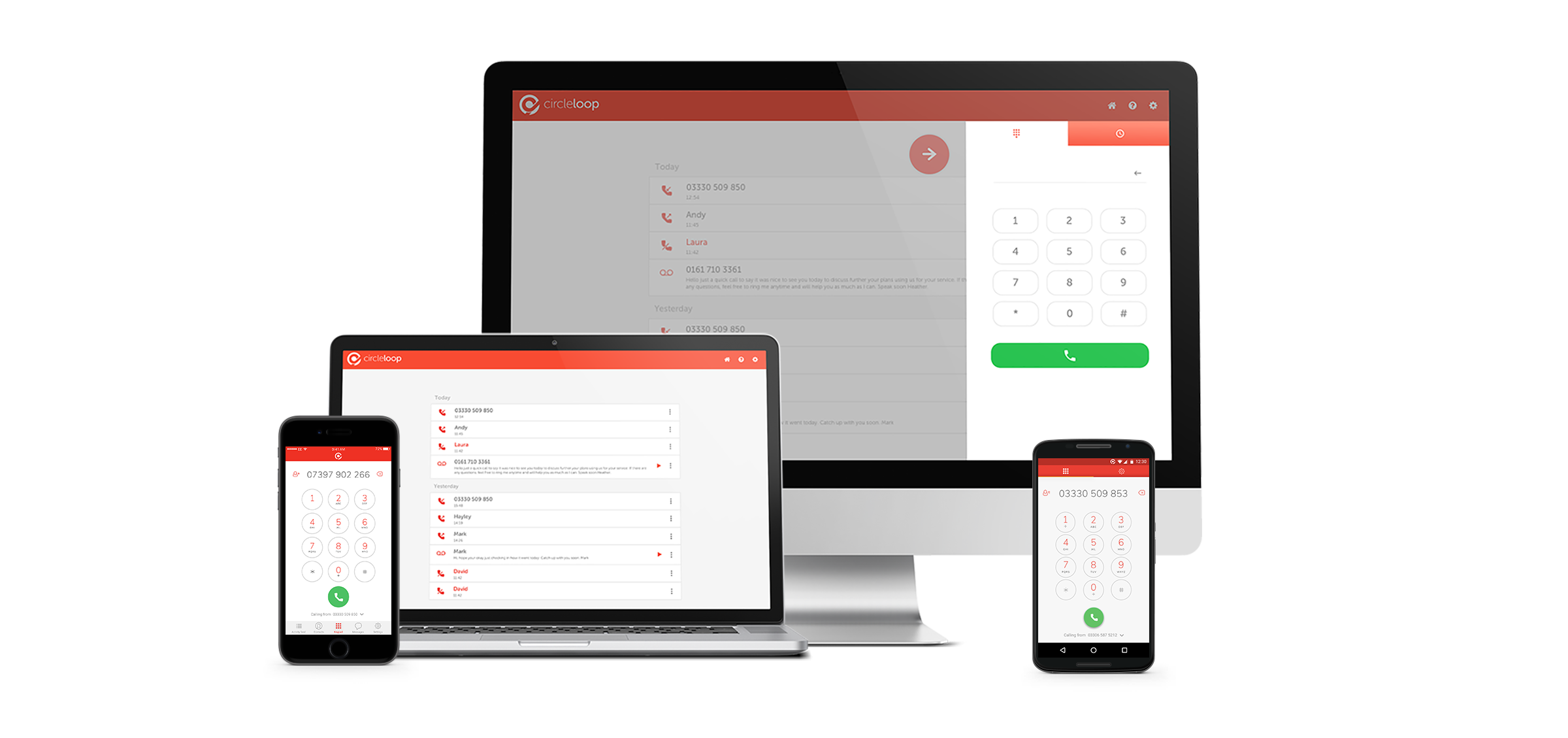Damian Hanson and David Hague are no strangers to starting up. The two entrepreneurs have been business partners for years, but their latest venture, CircleLoop has allowed them to revisit the biggest pain-points of growing a business.
CircleLoop is a smart online phone system, which allows small and medium businesses — from micro-businesses to fledging enterprises— to skip the hassle and expense of desk phones and work mobiles in favour of cloud-based communication.
“We believe telecoms remains a painful, complex and expensive area for many businesses and many now simply ignore it. Business owners are often presented with poor customer experiences from incumbent telecoms vendors who make millions of pounds from their old-school solutions and approaches. Customers are walked and talked through a maze of hardware choices, feature bundles, service rentals, complex packages and confusing jargon,” Hanson says.

“We’ve been there ourselves with our previous business. We wanted to address pain-points as small business owners ourselves. Telephony has always been complicated, time consuming and expensive. We believe there’s a better way of doing it,” he tells GrowthBusiness, referring to his previous business One iota. Hanson and Hague founded the retail tech business in 2010. One iota grew until it was acquired by Sanderson Group PLC in October 2013 and in 2016, the two founded their new business, Mission Labs, the tech company behind CircleLoop.
After years of monitoring and assessing growing trends among small business, Hanson believes that the biggest opportunity for the telecoms sector is to cater to this demographic of business owners who are used to working wherever they need to work.
“As business owners ourselves, we looked at telecoms and realised it’s really off-pace of how we do business these days. 96 per cent of all UK companies are micro-businesses and that segment is either ignored or underserved by telecoms providers. There must be a better way for them to look professional without the high cost. We didn’t see anything that could be good enough so we decided to build the tech on cloud-based platform,” Hanson says.
CircleLoop is disruptive in that it is single-handedly dragging the slow to change telecoms sector with a business telephony product designed for modern, mobile and lean start-ups. It runs completely through apps and removes the need for land lines and extra smart phones for staff. Every user is given three numbers; a national number, a local number and a mobile number, and the technology works over WiFi or mobile data for a monthly cost of £10 per user.
“When we founded Mission Labs we wanted to provide the ability for customers to sign-up to CircleLoop and be instantly live with their business telephony, so they could make and receive calls. Following months of development we have now achieved this goal.”
According to Hanson, the business has huge growth plans and is on the verge of rolling out more features to make business telephony as easy as email or file sharing. “We know it’s only a fraction of what we want it to be in the future. It’s our minimal viable product, but we have a long list of features we have planned to introduce, including internal call transfer, spam filters and things that are hard to integrate with normal telecoms services. We’re very close to launching our desktop app as well. You can already use your computer to make calls through the internet browser, but we’re also developing a fully installable desktop app that runs on Mac and Windows,” Hanson adds.
The start-up is also planning to integrate CircleLoop with other software-as-a-service tools like Google Cloud, calendar apps, CRM systems and other cloud products its small business customers are likely to use.
The move to cloud based communications has been happening for years, says Hanson. But looking at the business sector, it’s going to be moving quickly in coming years. “Skype has been around for over ten years, and in many ways, cloud-based digital systems are the future of telecoms. BT has recently announced that they will stop selling traditional phone lines and integrated digital connections by 2020. By 2025, these connections will be switched off completely, and everything will pretty much run over IP. BT is investing more than £1 billion each year to make this happen,” he explains.
Additionally, 5G, the fifth generation of mobile networks, is on the verge of a nation-wide roll-out, he adds.
“Where mobile data is concerned, most of the UK is fairly well covered with 4G, but next year, 5G will be rolled out, so by 2020, mobile data speed will be 100 times faster than it is now. In the next three to five years, businesses are going to have to make the shift to cloud or risk losing out because we will all be hyper-connected and expect that same pace of business across the board.”
According to Hanson, most telecoms companies currently have some form of a cloud proposition, but these large firms can’t move as quickly as CircleLoop can for obvious reasons. “They’re clinging on to existing businesses they make money out of that are still in that word, using legacy tech like desk phones. Why would they want to move at the same pace as us? They have too much money to lose if they migrate to the cloud completely. The truth is, there are literally thousands of telecoms in the UK, but in terms of direct competition, we’re in a very unique place,” he says.
CircleLoop already provides numbers from 80 countries around the world, so an international roll-out isn’t off the cards. “If we wanted to internationalise the business, we can do so with very minimal effort. All we’d have to do is charge in different currencies. The growth strategy and marketing in each country requires careful planning, of course.”
“Our primary market will always be the UK. The sheer number of start ups formed in the UK proves that we’re turning into a nation of entrepreneurs. We hope that continues as that’s the audience we want to cater for.”






